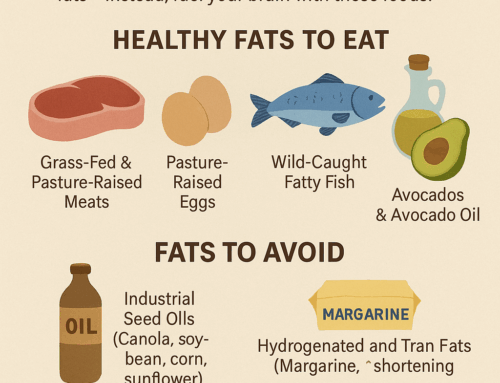The Lasting Effects of Trauma on Mental Health
Trauma, whether from a single, distressing event or prolonged exposure to hardship, can have profound and long-lasting effects on a person’s mental health. Traumatic experiences disrupt an individual’s sense of safety and well-being, leading to emotional, psychological, and even physical consequences. Understanding how trauma impacts mental health is essential for those who have experienced it and for those supporting them. In this blog post, we explore the effects of trauma on mental health and discuss strategies for healing and recovery.
What is Trauma?
Trauma is an emotional response to an intensely distressing or disturbing experience, such as:
- Physical or emotional abuse
- Sexual assault
- Natural disasters
- War or violence
- Loss of a loved one
- Neglect or abandonment
- Serious accidents or illnesses
While some may recover quickly, others face long-term effects that can result in mental health issues like anxiety, depression, and post-traumatic stress disorder (PTSD). Trauma also impacts emotional regulation, relationships, and overall well-being.
The Immediate Effects of Trauma
Immediately after a traumatic event, the brain enters a state of fight, flight, or freeze, releasing stress hormones like cortisol and adrenaline. This natural survival mechanism prepares the body to respond to danger. However, for some, the brain may remain on high alert even after the threat has passed, leading to chronic anxiety and hypervigilance.
Immediate reactions to trauma include:
- Shock or disbelief
- Intense fear or anxiety
- Numbness or emotional detachment
- Difficulty concentrating
- Mood swings or irritability
When these responses persist, they can develop into more serious mental health challenges.
Long-Term Effects of Trauma on Mental Health
For many individuals, the effects of trauma extend far beyond the initial event. Common long-term mental health impacts include:
1. Post-Traumatic Stress Disorder (PTSD)
PTSD is a condition that develops after experiencing or witnessing a traumatic event. It involves symptoms like:
- Flashbacks or intrusive memories
- Nightmares
- Avoidance of reminders of the trauma
- Feelings of detachment or numbness
- Hypervigilance and an exaggerated startle response
PTSD can severely disrupt daily life, relationships, and emotional well-being.
2. Anxiety and Depression
Trauma can result in chronic anxiety and depression. Anxiety may manifest as constant worry, panic attacks, or fears related to the traumatic event. Depression can arise from feelings of hopelessness, isolation, or a loss of purpose.
3. Emotional Dysregulation
Trauma often interferes with the brain’s ability to regulate emotions, leading to sudden mood swings, anger, or overwhelming sadness. This emotional instability can make relationships and day-to-day functioning difficult.
4. Dissociation
Sometimes, people may experience dissociation, a coping mechanism where they feel disconnected from reality, their body, or their emotions. While dissociation helps people survive overwhelming stress, it can create long-term challenges in feeling present and engaged.
5. Substance Abuse and Addiction
Some trauma survivors turn to substances like drugs or alcohol to cope with their pain. Although this may provide temporary relief, substance abuse often leads to addiction, which further complicates mental health and deepens the trauma cycle.
Impact on Relationships and Social Connections
Trauma can significantly impact a person’s ability to trust and maintain relationships. Survivors may withdraw from others, fear intimacy, or become overly dependent on loved ones for emotional support. Children and teens who experience trauma often struggle with attachment and trust issues later in life, which can extend into adulthood and affect personal and professional relationships.
Healing from Trauma
Recovery from trauma is possible, but it requires time, patience, and a holistic approach. Here are critical strategies for healing:
1. Therapy
Therapy is one of the most effective tools for trauma recovery. Approaches such as Cognitive Behavioral Therapy (CBT) and Eye Movement Desensitization and Reprocessing (EMDR) help trauma survivors process painful memories and reduce symptoms of PTSD, anxiety, and depression. Therapy offers a safe space to explore trauma and build healthier coping mechanisms.
2. Physical Activity
Regular physical activity is crucial in trauma recovery because it helps the body and mind reconnect. Exercise releases endorphins, which naturally improve mood and reduce stress. Activities such as yoga, swimming, walking, or strength training can provide a sense of control, improve sleep, and reduce anxiety.
Trauma survivors may also benefit from mindful movement, such as yoga or tai chi, which promotes relaxation and body awareness. These practices can help re-establish a sense of safety and grounding in the present moment.
3. Building a Support System
Having a solid support system of friends, family, or support groups can make a huge difference in trauma recovery. It’s important to have people who offer nonjudgmental support and understanding. Professional support from counselors or peer groups also provides an essential safety net during difficult times. To find a support group near you, visit Psychology Today.
4. Mindfulness and Relaxation Techniques
Mindfulness practices, such as meditation, deep breathing, and progressive muscle relaxation, can help trauma survivors manage anxiety and stress. These techniques encourage self-awareness and relaxation and help individuals regain emotional control.
5. Spirituality and Connection to Meaning
Spirituality can offer a powerful source of healing for those recovering from trauma. While spirituality means different things to different people, it often involves a connection to a higher power, a sense of purpose, or a belief in something greater than oneself. Engaging in spiritual practices like prayer, meditation, or attending religious services can foster a sense of inner peace and provide comfort during times of distress.
For some trauma survivors, finding meaning or purpose in their experiences through spiritual reflection can lead to personal growth and emotional healing. Spirituality can also provide a framework for forgiveness, self-compassion, and acceptance, all of which are critical components of trauma recovery.
Even if someone does not identify with a specific religion, activities like spending time in nature, practicing gratitude, or engaging in acts of kindness can foster a deep connection and healing. Exploring one’s spiritual beliefs or values can help trauma survivors rebuild their inner strength and find hope as they move forward.
6. Self-Care
Self-care is essential in healing, allowing individuals to reconnect with their needs and regain control over their lives. This involves prioritizing adequate sleep, proper nutrition, and engaging in activities that bring joy or a sense of fulfillment. By practicing self-care, trauma survivors can build resilience and begin to reclaim their lives. To learn more about how diet plays a role in mental health, visit our blog.
Conclusion
Trauma can leave deep and lasting marks on mental health, affecting everything from emotional regulation to physical well-being. While the road to healing may be long, it is possible with the proper support, tools, and self-care practices. By seeking therapy, engaging in physical activity, nurturing spirituality, and fostering a solid support system, trauma survivors can find hope and healing as they navigate their journey to recovery.







Leave A Comment